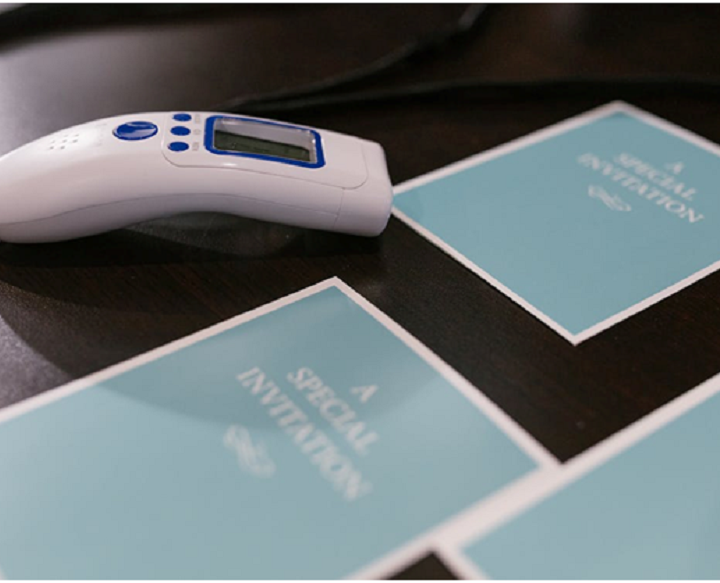**Introduction**
In recent years, the intersection of artificial intelligence (AI) and healthcare has led to remarkable advancements, revolutionizing how medical professionals diagnose diseases, develop treatment plans, and deliver patient care. From predictive analytics to personalized medicine, AI is reshaping the landscape of healthcare, offering unprecedented opportunities to enhance efficiency, improve outcomes, and ultimately save lives. This article explores the transformative potential of AI in healthcare and examines the key trends, challenges, and ethical considerations shaping its future.
*1.1 Diagnostics and Imaging*
One of the most promising applications of AI in healthcare is in medical diagnostics and imaging. Machine learning algorithms can analyze medical images, such as X-rays, MRIs, and CT scans, with remarkable accuracy, aiding radiologists in detecting abnormalities and diagnosing conditions at an early stage. AI-powered diagnostic tools have demonstrated the potential to improve diagnostic accuracy, reduce errors, and expedite the interpretation of medical images, leading to faster treatment decisions and better patient outcomes.
*1.2 Drug Discovery and Development*
AI is also revolutionizing the process of drug discovery and development, traditionally a time-consuming and expensive endeavor. Machine learning algorithms can analyze vast amounts of biological data to identify potential drug targets, predict the efficacy and safety of drug candidates, and optimize treatment regimens. By accelerating the drug discovery process and enabling the development of more targeted and personalized therapies, AI has the potential to revolutionize the treatment of various diseases, including cancer, infectious diseases, and rare genetic disorders.
*1.3 Personalized Medicine*
Personalized medicine, which involves tailoring medical treatment to the individual characteristics of each patient, is another area where AI is making significant strides. Machine learning algorithms can analyze a patient’s genetic, clinical, and lifestyle data to predict their risk of developing certain diseases, identify the most effective treatments, and optimize treatment plans to maximize efficacy and minimize side effects. By harnessing the power of AI to deliver personalized healthcare solutions, medical professionals can provide more targeted and effective care, leading to better outcomes and improved patient satisfaction.
*2.1 Remote Patient Monitoring*
With the rise of wearable devices and remote monitoring technology, there is growing interest in using AI to monitor patients’ health remotely. Machine learning algorithms can analyze data from wearable sensors, such as heart rate monitors, glucose monitors, and activity trackers, to detect early signs of health problems, monitor chronic conditions, and provide timely interventions. Remote patient monitoring powered by AI has the potential to improve patient engagement, reduce hospital readmissions, and enable more proactive and personalized healthcare delivery.
*2.2 Virtual Health Assistants*
Virtual health assistants, powered by natural language processing and machine learning algorithms, are becoming increasingly popular tools for patient engagement and healthcare delivery. These AI-powered chatbots and virtual assistants can provide patients with personalized health advice, answer medical questions, schedule appointments, and even assist with medication management. Virtual health assistants have the potential to enhance access to healthcare services, improve patient communication, and streamline administrative tasks, freeing up healthcare professionals to focus on more complex and critical aspects of patient care.
*2.3 Predictive Analytics*
Predictive analytics, which involves using data mining and machine learning techniques to analyze historical data and predict future events or outcomes, is another key trend in AI healthcare. By analyzing electronic health records, medical imaging data, and other healthcare data sources, predictive analytics algorithms can identify patterns, trends, and risk factors associated with various diseases and health conditions. This information can be used to develop predictive models that enable early intervention, optimize treatment strategies, and improve patient outcomes. Predictive analytics powered by AI has the potential to revolutionize preventive care, chronic disease management, and population health management initiatives.
*3.1 Data Privacy and Security*
One of the primary challenges facing the adoption of AI in healthcare is ensuring the privacy and security of patient data. As healthcare organizations increasingly rely on AI-powered systems to analyze sensitive medical information, there is a growing risk of data breaches, unauthorized access, and misuse of personal health data. Addressing these concerns requires robust data protection measures, including encryption, access controls, and data anonymization techniques, as well as compliance with regulatory frameworks such as HIPAA (Health Insurance Portability and Accountability Act) in the United States and GDPR (General Data Protection Regulation) in the European Union.
*3.2 Bias and Fairness*
Another important consideration in the deployment of AI in healthcare is the risk of algorithmic bias and unfairness. Machine learning algorithms are trained on historical data, which may reflect existing biases and inequalities in healthcare delivery. If these biases are not adequately addressed, AI systems may perpetuate or exacerbate disparities in access to healthcare, diagnosis, and treatment. To mitigate this risk, it is essential to develop and implement algorithms that are transparent, interpretable, and equitable, and to continuously monitor and evaluate their performance across diverse populations.
*3.3 Regulatory and Legal Challenges*
The rapid pace of innovation in AI healthcare poses challenges for regulatory agencies and policymakers tasked with ensuring the safety, efficacy, and ethical use of these technologies. Current regulatory frameworks may struggle to keep pace with the evolving landscape of AI in healthcare, leading to uncertainty and inconsistency in regulatory oversight. To address these challenges, regulatory agencies must collaborate with industry stakeholders to develop clear guidelines and standards for the development, deployment, and evaluation of AI-powered healthcare solutions, while also balancing the need for innovation and patient safety.
*4.1 Collaborative AI Research*
Collaboration between academia, industry, and healthcare providers is essential for advancing the field of AI in healthcare. By sharing data, expertise, and resources, researchers can accelerate the development and validation of AI-powered healthcare solutions, address key challenges, and maximize the impact of their work. Collaborative AI research initiatives, such as open-access datasets, shared benchmarking platforms, and multi-institutional consortia, can facilitate knowledge exchange and collaboration across disciplinary boundaries, driving innovation and progress in AI healthcare.
*4.2 Integration of AI into Clinical Practice*
As AI technologies mature and become increasingly integrated into healthcare delivery, there is a growing need to ensure that healthcare professionals are equipped with the knowledge, skills, and resources to effectively utilize these tools in clinical practice. Training programs, continuing education courses, and professional development initiatives can help healthcare providers learn how to integrate AI into their workflow, interpret AI-generated insights, and communicate effectively with patients about the use of AI in their care. By empowering healthcare professionals to harness the power of AI, we can ensure that these technologies fulfill their potential to improve patient outcomes and enhance the delivery of healthcare services.
*4.3 Patient Empowerment and Engagement*
Finally, as AI becomes more pervasive in healthcare, it is essential to prioritize patient empowerment and engagement, ensuring that patients are active participants in their own care and decision-making processes. Patient-facing AI tools, such as health monitoring apps, virtual health assistants, and personalized health recommendations, can empower individuals to take control of their health, make informed decisions, and adopt healthy behaviors. By involving patients in the design, development, and evaluation of AI-powered healthcare solutions, we can create patient-centered systems that prioritize individual needs, preferences, and values, ultimately leading to better health outcomes and improved quality of life.
**Conclusion**
The future of healthcare is undoubtedly intertwined with the future of artificial intelligence.






